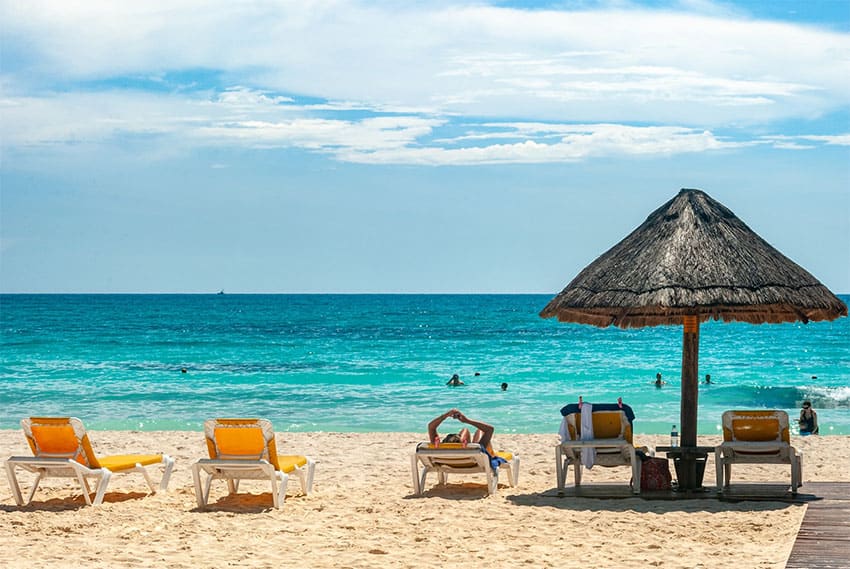Helping grown kids with ADHD

Jenna Mayhew has been working as a psychologist in Mexico for eight years. At her practice, Hola Therapy, she has made it her mission to help foreigners living in Mexico, Mexicans with a foreign partner, foreigners with links to Mexico and Mexicans with links to foreigners or foreign countries.
In this new series, Jenna answers MND readers’ questions on the pressing issues of relationships, mental health and navigating changes that come with relocating to and living in Mexico.

Dear Jenna,
I’m a 66 year old woman from Chicago and for the past seven years I’ve been visiting Mérida whenever I can. Last year I retired, and my plan was to move to Mérida full time.
However my youngest son, who is 33, has ADHD. He is constantly losing jobs, struggling financially and in conflict with the mother of his children. Oftentimes I end up caring for my grandchildren on the weekends when he’s meant to see them.
For more than a decade my energy, finances and time have been dedicated to trying to get him help. I have found therapy and psychiatry for him, jobs and interviews, linked him in with financial support services which he doesn’t take up, cared for his kids and paid off his excessive credit card bills several times over. I want to live my own life, but I also feel guilty leaving him and his children without support. What should I do?
– Caged Snowbird


Dear Caged Snowbird,
Your sign-off name says it all — you feel trapped. Let’s untangle this from the beginning. Your son’s ADHD is undoubtedly a challenge, and you’re right to be supportive. But from what you’ve shared, it seems like there’s more going on here than just ADHD.
You strike me as a devoted mother and grandmother who genuinely wants to help. We all want to support our loved ones, especially in tough times. However, what you’re describing seems to be a persistent cycle that goes beyond just providing support. Your son seems to be relying heavily on your time, money and resources, even affecting your retirement plans. So, where do you draw the line?
Let’s start with what’s good for your son. How much are you helping him by engaging in this cycle? When people genuinely want to change they tend to display two things. Firstly, they take full responsibility for their prior actions — no excuses, no blame, no minimizing. Secondly, they take action to show they’re motivated to change. Even when these two things are present, change is hard fought and hard won.
From what you’ve described, your son’s current behavior suggests he might not be ready to make these changes, or worse, he might be benefiting from this cycle of rescue. Remember the old joke: “How many psychologists does it take to change a lightbulb?” The answer is: “The lightbulb has to want to change itself first.”
It’s time to step back and assess the whole situation. Acknowledge your fears for your son and grandchildren. What’s the reality you need to face? Perhaps it’s that your son’s choices are not prioritizing his children, and if this continues he might lose his visitation rights. Accepting harsh realities such as this might be necessary for moving forward. It’s time to disengage in this cycle of rescuing your son, because, frankly, it’s not helping change his situation.
Now, let’s focus on you. At 66, you’re approaching retirement and have your own plans. It’s crucial to find a balance between being there for your family and living the life you’ve envisioned for yourself. With the harsh reality above accepted, let’s look at ways that you can move forward in a more balanced way. This might look like moving to Mérida and staying present in your son’s life as a support. Let him know you’ll be there to help him help himself whenever he needs it. If he ever needs an extra hand with logistics, finding support services or planned visits from you, you’ll be there. It might be to nurture your relationship with your grandkids, reminding them that no matter who they live with, they’ll have a present and loving grandmother. You might even let them know that you’ll always come and visit them in Chicago or they could come and visit you in Mérida.
And set some limits — whatever feels right to you. These limits may be related to finances, childcare or time. You don’t have to cut anyone off, but you do get to choose where the boundary is. Ultimately, it may end up being the best thing for everyone involved.
So, Trapped Snowbird, I hope you can open the door to your own cage and fly down to Mérida, guilt free and with the full knowledge that your family has a reliable, loving mother and grandmother to count on. The rest is up to your son.
Jenna Mayhew is an Australian psychologist based in Mexico, with over 20 years of experience in Australia, England and Mexico. She is the founder of Hola Therapy, a bilingual practice dedicated to supporting the immigrant and cross-cultural communities in Mexico and provides therapy in-person and online across Mexico and worldwide. Jenna’s work combines her extensive expertise with a deep commitment to addressing the unique challenges faced by individuals in diverse cultural settings.
Source: Mexico News Daily

